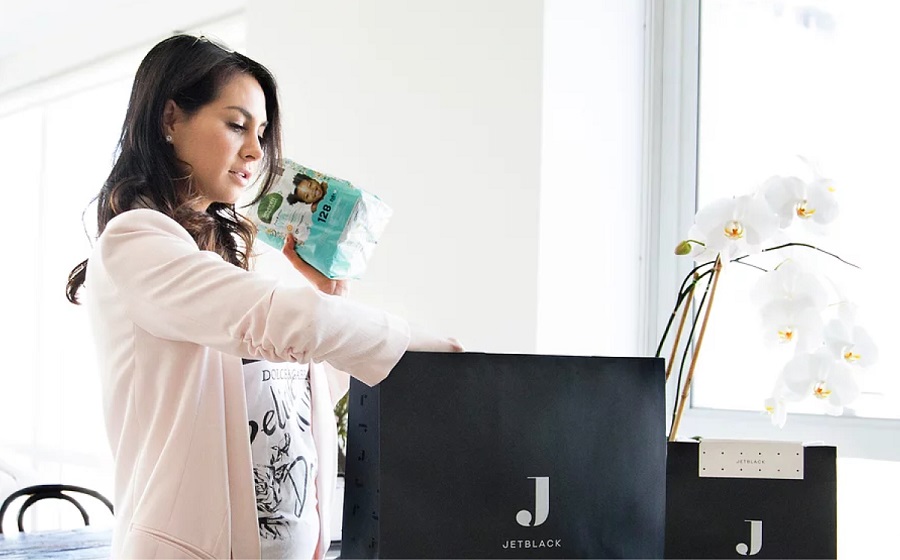“Distribution channels,” as they were once called before the Internet, are being wiped out by a stealth democratization process arguably begun by Amazon. Walmart has entered the field punctuated by its launch of Jetblack, a high-end concierge service. Jetblack charges $50 a month for a “texting on the run” service, primarily targeted to higher-income working couples, with or without kids. It is currently being beta tested in New York City for consumers who live in buildings with doormen who can accept deliveries for their tenants.
Wait a second! They pay $50 a month just to belong to the service? Before they purchase anything? That certainly doesn’t sound like Walmart’s DNA as the “everyday low prices” discounter. Jetblack is another foray in Walmart’s long tail acquisition strategy to a targeted audience so the traditional Walmart “persona” will not create confusion with its traditional and loyal customers. It also looks like an obvious play on Jet.com, Walmart’s higher-end ecommerce platform. And then there’s the whiff of elite exclusivity with the word “black.” Think the Amex Centurion card. Or maybe to the cooler cultural cues like Black Mirror and Dark. Walmart goes luxe and high cool factor? This is a big signal folks, and a smart new strategy for distribution.
How We Shop
Before the internet, shopping was a proactive and physical venture to a mall, store or catalog, either for pleasure or purpose. Consumers would go to the retail nameplates best aligned with their demographic and lifestyle behaviors, as well as convenience. Furthermore, the goods and/or services sold in those stores were aligned accordingly, including prices.
Over time, all retail models fit nicely into fairly distinct and well-defined academic “distribution channels.” That said, consumers do not use that term and 99 percent wouldn’t know what you are talking about or what it means if you asked them. They would look at you as if you were crazy if you asked them which of the following distribution channels Macy’s operates in: discount, department store, luxury retail, branded retail specialty chain, off-price, outlet channel, mass market chain, category killer — and maybe I missed a few.
Why? Because they don’t give a damn, and they literally never did. But, forget the definitions and terminology. They did, in fact, shop in those channels and the stores within, that aligned with their demographic, lifestyle, geographic and value perceptions.
Today, even that is gone. Ecommerce killed the concept. Next-gen consumers are channel agnostic in the new world. And even more dramatic, the words “retail” and “wholesale” have become irrelevant.
Tear Down the Walls
Being agnostic allows freedom of choice. Being agnostic, there are no limits that a brand or store is not for you. You can bounce around from an elitist, luxury-branded product on your mobile device that you can’t afford, to actually buying it pre-owned on RealReal. And if it’s a Louis Vuitton bag, you don’t think anything less of Louis Vuitton — or Chanel, Hermes or Gucci. As Amazon reaches out to luxe designers, who, in my opinion will soon cave in to selling on Amazon, they will prove that consumers are very pleased to buy luxury goods from Amazon and will think nothing less of those designers. How about Whole Foods? Do you think anybody really cares that Amazon is the new owner? Hell no.
And that’s the whole point. That Walmart’s brilliant CEO, Doug McMillon, along with his new sidekick Marc Lore, fully get. They are savvy enough to literally expand across the universe of world marketplaces, from luxury to basic needs, just as Amazon is doing. Let’s review: Consumers are brand and channel agnostic, allowing businesses to sell an infinite array of goods and services on all available marketplace platforms, both online and off. So, if we agree that Walmart and Amazon are marketplace platforms, they can acquire and/or create any product, brand or service. They can also share their platforms with any merchant from luxury to basic commoditized goods. Again, they can do this because consumers are channel and brand agnostic, which allows them to do it.
Jetblack’s Debut
Jetblack is the first startup to come out of Walmart’s Store No.8, where their innovative brainiacs hatch great new ideas. Jenny Fleiss, co-founder with Jennifer Hyman of Rent the Runway, was persuaded by Marc Lore in 2017 to head up what was then called “Code Eight,” an incubator within Store No.8. According to Fleiss, this work focused on “making shopping magical via one-to-one personalization, AI, and machine learning.” And she now heads up Jetblack, which grew out of this innovation lab.
The eight-month beta test, currently operating in Manhattan and Brooklyn, targets higher income working couples with kids who are time-starved and want the basic chores of life made faster and easier for them. Here’s how it works: Millennial mom is riding in an Uber to her next meeting. She remembers her twins are attending a birthday party that evening. She contacts Jetblack with text or voice, which has all her personal information logged in based on an opening interview with her and her husband. Jetblack immediately replies with several suggestions for birthday gifts. Jane picks two, gift-wrapped with personalized cards, to be delivered to her apartment on the Upper East side.
The package will be held by the doorman until she arrives home after work. Since she ordered before 2:00 PM, the gifts are delivered the same day. Fleiss explains that this kind of deep personalization is made possible through a combination of human and machine learning.
Jetblack’s goods will primarily be sourced from Jet.com and Walmart, and because of their competitive agnostic platform, they will source from other retail partners if needed. To date, they have partnered with Pottery Barn, Gap, Blue Mercury and many other small boutiques in New York City. Members are charged $50 a month, and so far, they seem happy to pay for the service. Of course, these target customers can afford it. As Fleiss quipped in an article, “After all, in Manhattan that’s just a couple hours of babysitting services rendered unnecessary by Jetblack.”
That’s Not All Folks
Jetblack is only one of the newest initiatives Walmart is embarking on to upscale its image, goods, services and the entire shopping experience for higher income consumers. They are modernizing stores, building new cool apparel bands and acquiring hip upstarts like Bonobos, Modcloth and Moosejaw. They are also upscaling Sam’s Club. And, even though they dominate the grocery sector with a 25 percent share, they are also adding more fresh foods and curating more organic selections. Among many other initiatives, they are partnering with Microsoft to perfect automatic checkout, which Amazon Go is still struggling with.
And here is the most important point of this article: Do you think if our young professionals knew Walmart was the parent of the wonderful Jetblack service clocking in at $600 a year, that they would care? Do you think it would cheapen their perception of the service and the goods they are receiving? If you do, then your head is still stuck in the old-world sand that is destroying the industry.
Walmart is a platform, not a store or a discount distribution channel. If you don’t get this, can’t get your head out of “stuck” and into this new world reality, then, as has become an overused term, (for good reason), you are a dead man walking.




